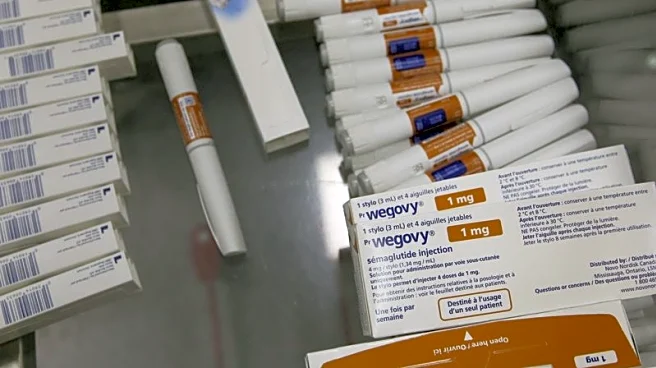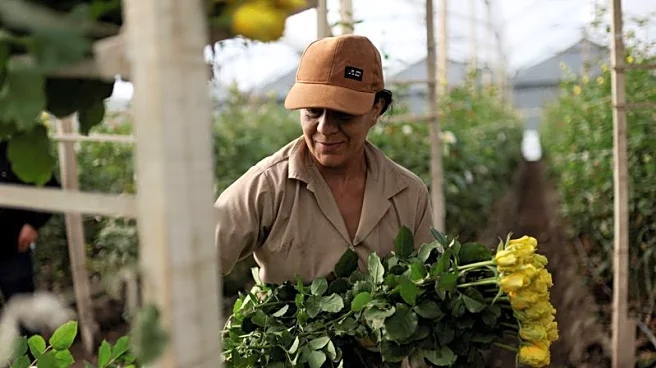What's Happening?
President Trump has announced plans to increase low-tariff beef imports from Argentina, aiming to alleviate record beef prices in the United States. This decision has sparked criticism from U.S. cattle
ranchers, who feel betrayed by the move. Currently, Argentina accounts for over 2% of U.S. beef imports, with a quota allowing up to 20,000 metric tons annually at a lower tariff rate. The administration plans to raise this quota to 80,000 metric tons, effectively quadrupling the amount of Argentinian beef entering the U.S. at low tariffs. Agriculture Secretary Brooke Rollins emphasized that the increase is not a massive influx, as Americans consume 12 million metric tons of beef annually, with 10 million produced domestically. Despite the administration's assurances, ranchers like Christian Lovell express concerns over the impact on American farmers, fearing competition from foreign imports.
Why It's Important?
The expansion of beef imports from Argentina is significant as it addresses the rising beef prices affecting American consumers. However, it poses challenges for U.S. cattle ranchers who are experiencing a rare profitable year due to factors like drought and parasite infestations reducing cattle supply. The move could undermine the financial recovery of ranchers who have faced years of economic hardship. Additionally, the lack of mandatory labeling for imported beef could disadvantage U.S. farmers, as large meatpacking corporations may opt for cheaper foreign beef. The decision also reflects broader trade tensions, with soybean farmers already impacted by tariffs and trade disputes with China. The administration's actions could further strain relations with rural communities that have historically supported President Trump.
What's Next?
The administration's decision may lead to increased lobbying and pressure from agricultural groups seeking to protect domestic interests. The USDA has announced initiatives to support ranchers, including expanding access to federal land for grazing and prioritizing grants for veterans entering the industry. However, these measures may not fully address the concerns of farmers who feel the need for a fair market and incentives to rebuild the U.S. cattle herd. The ongoing government shutdown complicates the situation, delaying potential bailout plans for farmers. As the administration navigates these challenges, the response from rural communities and agricultural stakeholders will be crucial in shaping future policies.
Beyond the Headlines
The decision to expand beef imports from Argentina highlights ethical and economic dilemmas in balancing consumer interests with the sustainability of domestic agriculture. The reliance on foreign imports raises questions about food security and the long-term viability of American farming. Additionally, the move underscores the complexities of international trade relations, particularly with countries like China, which have significant influence on U.S. agricultural markets. The administration's approach may prompt discussions on the need for comprehensive strategies to support American farmers while addressing global trade dynamics.









